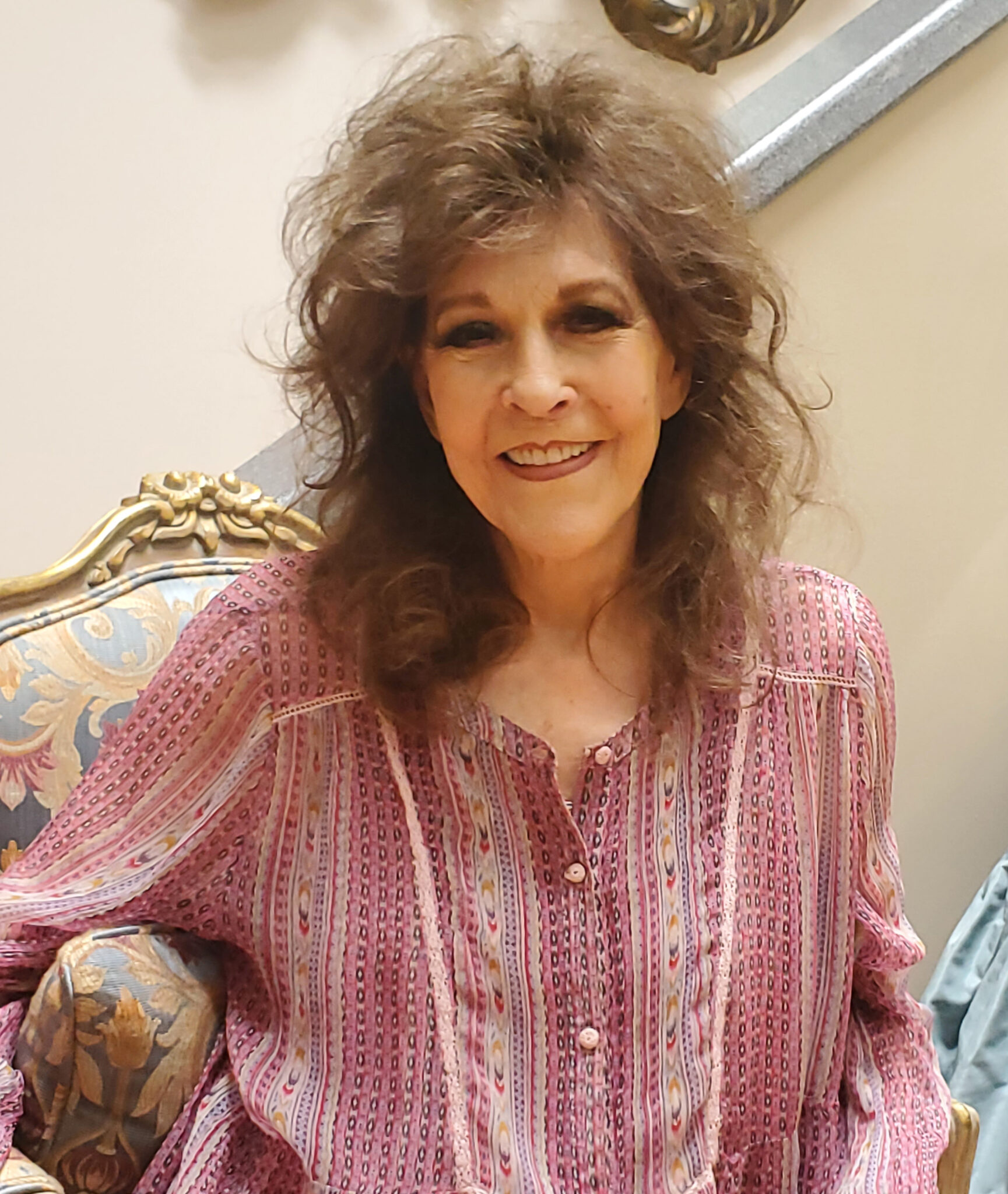Donna Fargo's Net Worth In 2025: The Untold Story Of Her Financial Journey
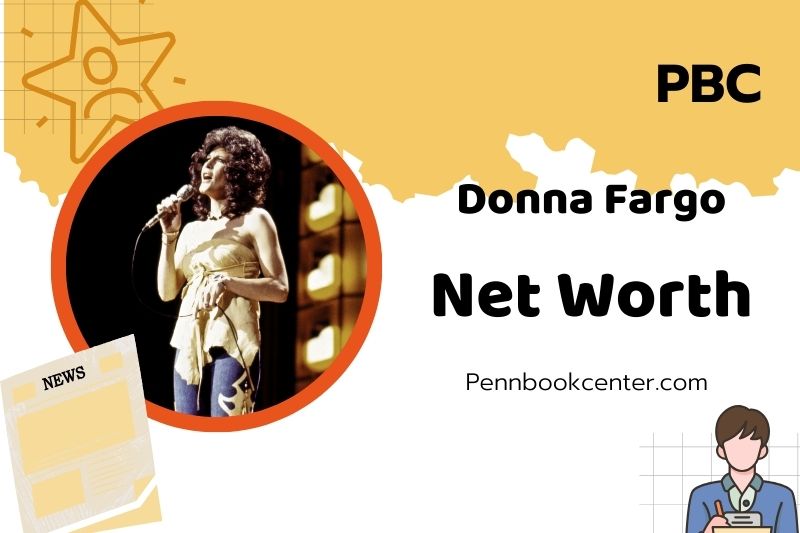
You’ve probably heard Donna Fargo’s voice on the radio or seen her name in the history books of country music. But have you ever wondered how much she’s really worth? As one of the most celebrated artists from the 1970s, Donna Fargo’s hits like "The Happiest Girl in the Whole U.S.A." and "Funny Face" left an indelible mark on the music world. But beyond the stage, her financial story is just as captivating as her music.
Let me take you on a journey through the life and finances of this legendary artist. From her early days as a young singer to her rise as a country music icon, we’ll explore how Donna Fargo built her net worth and shaped her financial legacy over the decades.
Table of Contents
Read also:Who Is James Heltibridle A Comprehensive Guide
Donna Fargo: A Quick Look at Her Life and Career
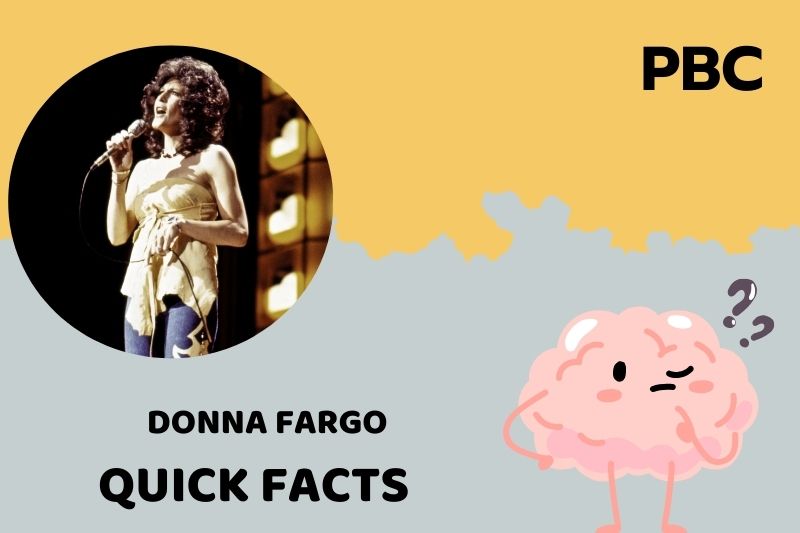
| FACT | DETAIL |
|---|---|
| Real Name | Yvonne Vaughn |
| Popular Name | Donna Fargo |
| Birth Date | November 10, 1945 |
| Age | 79 (as of 03/26/2025) |
| Birthplace | Mount Airy, North Carolina, USA |
| Nationality | American |
| Ethnicity | Caucasian |
| Education | High Point College, University of Southern California |
| Marital Status | Married |
| Spouse | Stan Silver (m. 1968) |
| Children | N/A |
| Dating | N/A |
| Siblings | N/A |
| Parents | N/A |
| Height | N/A |
| Net Worth | Not publicly disclosed |
| Source of Wealth | Music career, songwriting, television show, books, greeting cards |
How Much Is Donna Fargo Worth in 2025?
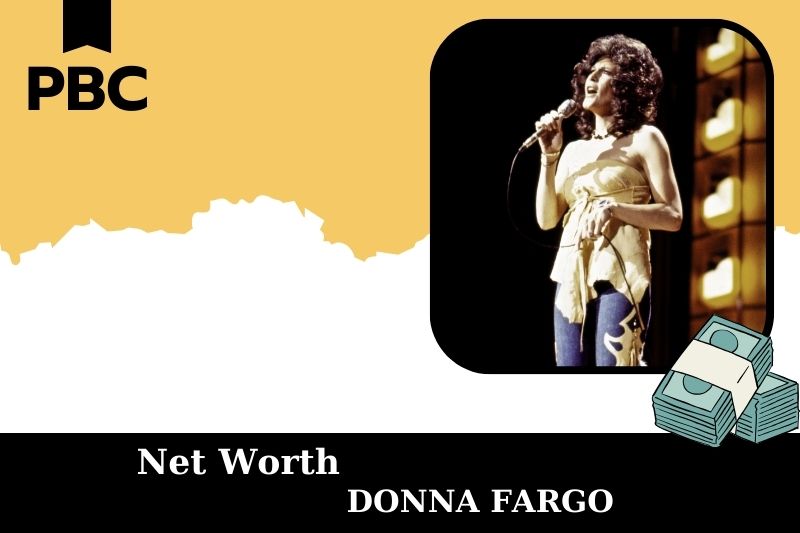
Alright, here’s the big question: How much is Donna Fargo really worth in 2025? The truth is, her exact net worth remains a closely guarded secret, much like many other legendary artists. But let’s face it—her decades-long career as a country music powerhouse has undoubtedly earned her a substantial fortune.
From her chart-topping hits to her ventures outside music, Donna Fargo has built a financial empire that spans multiple industries. Her songs have sold millions, her albums have been certified gold, and her live performances have captivated audiences across the globe. But her wealth extends far beyond just music.
Compared to other country legends like Dolly Parton, Tammy Wynette, and Loretta Lynn, Donna Fargo’s financial details might not be as publicized. But don’t let that fool you. Her impact on the industry and her crossover appeal have secured her a spot among the richest celebrities in country music.
Here’s a quick look at some of the artists who have paved the way for Donna Fargo’s financial success:
Read also:Ximena Sanezz Unveiling The Talented Content Creator
- Dolly Parton
- Tammy Wynette
- Loretta Lynn
- Lynn Anderson
- Billy Joe Royal
- Kitty Wells
- Tanya Tucker
- Ray Price
- Marty Robbins
- Dottie West
If you’re curious about the earnings of other famous artists, check out the wealthiest celebrities in music.
Donna Fargo’s Wealth: Breaking Down Her Financial Success
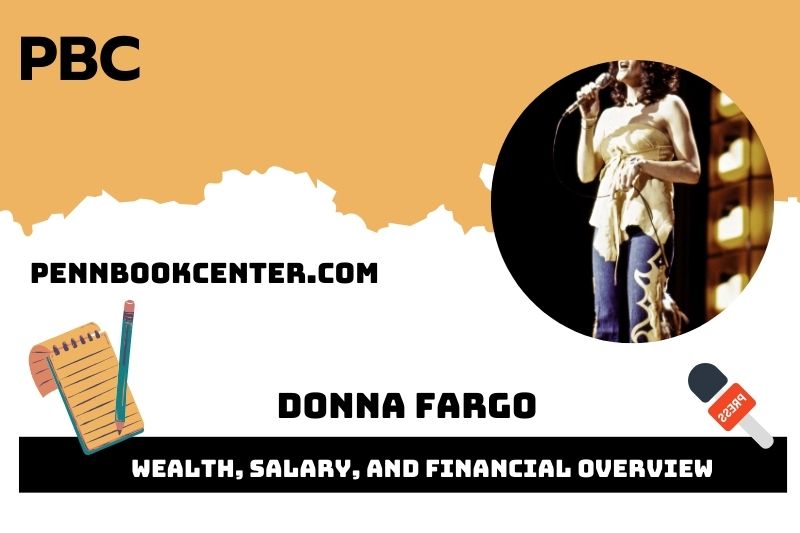
Where Does Her Money Come From?
Donna Fargo’s financial success is rooted in her music career, but it’s not just about the hits. Her earnings come from a mix of sources, each contributing to her overall wealth. Let’s take a closer look at how she’s made her money over the years.
Music Career: The Backbone of Her Wealth
Donna Fargo’s income largely stems from her hit songs, live performances, and album sales. Her breakthrough came in 1972 with "The Happiest Girl in the Whole U.S.A.," a song that not only topped the country charts but also crossed over to the pop charts. This achievement earned her a Grammy Award and significantly boosted her financial profile.
Following this success, her next big hit, "Funny Face," also became a crossover sensation, cementing her reputation as a major artist and further increasing her earnings. Over the years, Fargo released multiple successful albums, many of which she wrote and composed herself. This ownership allowed her to retain more royalties and profits compared to artists who relied on external songwriters.
Her consistent presence on the Billboard Hot 100 and country charts generated steady revenue. Even though her later works didn’t achieve the same mainstream crossover appeal, they continued to perform well within country music circles.
Songwriting and Composing: A Lucrative Talent
Donna Fargo is among the few female country artists of her era who wrote and composed most of her songs. This ownership led to significant earnings from royalties. Songs like "Superman" and "You Can’t Be a Beacon If Your Light Don’t Shine" exemplify her talents and financial gains from self-written hits.
Television Appearances and Shows: Expanding Her Reach
Her television show, "The Donna Fargo Show," produced by the Osmond Brothers, added another stream of income. As one of the few female country singers to host her own show, she tapped into television royalties and syndication revenue. This platform allowed her to connect with audiences while diversifying her income.
Books and Greeting Cards: A Creative Venture
Besides music, Donna Fargo ventured into writing, authoring poetry books and designing greeting cards. Her Blue Mountain Arts series and books like "I Thanked God For You Today" provided another steady revenue stream. These ventures showcased her literary talents and reinforced her brand as a thoughtful and expressive artist.
Collaborations with Record Labels: Building Partnerships
Throughout her career, Fargo collaborated with prominent record labels such as Dot Records, Warner Bros. Records, and Mercury Records. These partnerships helped her reach wider audiences and secure better financial arrangements, particularly during her peak years in the 1970s.
Health Challenges: A Test of Resilience
In 1978, Donna Fargo was diagnosed with multiple sclerosis, a condition that significantly impacted her career trajectory. While her illness affected her ability to perform regularly, her determination and the unwavering support from her husband, Stan Silver, enabled her to continue creating music and managing her finances.
This health challenge slowed her momentum, but Fargo remained resilient, focusing on songwriting and lower-intensity projects like writing and greeting cards. Her choice to manage her condition privately helped minimize potential disruptions to her income.
Label Changes: Navigating the Music Industry
Throughout her career, Donna Fargo worked with multiple record labels, each transition bringing new opportunities and challenges. After finding success with Dot Records, she moved to Warner Bros. Records and later Mercury Records. The quality of releases and market dynamics varied across these collaborations, impacting her financial success differently.
While Dot Records was crucial for her early breakthroughs, her


